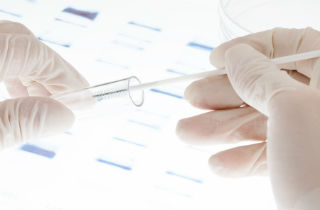By Maria Elizabeth Weidmer-Mikhail, MD
Addiction treatment can incorporate medications and genetic testing. Learn how one leading facility uses these tools as integral components of a successful treatment program. More here, with a section at the end for your questions.
Why Medication Management is Important
When treating an individual for addiction, it is critical to:
- Monitor all medications.
- Check how they may interact with one another.
- Safeguard against any adverse reactions at all times.
This happens with the understanding that no medication impacts any two people in exactly the same way, and for that reason, each person requires an individual approach.
Whether treating someone for addiction alone or for addiction and a co-occurring psychological condition such as depression, you must ensure that highly trained physicians and clinicians oversee and manage medications for each patient. At times, this even includes the use of cutting-edge genetic testing. This important tool can help determine ways to adjust personalized treatment plans to achieve better stabilization and long-term outcomes.
Medication-Assisted Treatment for Addiction
There are many reasons to prescribe medications during treatment. However, the amounts and types will change over the course of recovery. Initially, patients at Enterhealth who are undergoing Medical Withdrawal Stabilization – also known as detox – will receive specific medications to help alleviate a number of common issues associated with drug or alcohol withdrawal. Goals of medication include:
- reducing physiological cravings
- preventing medical episodes such as seizures
- normalizing brain and body chemistry
These medications are prescribed without the negative effects of the abused substance. Further, medications set people up for successful detox and give a good start for early recovery.
Once detox is complete, some patients will be prescribed “anti-addiction medications”. These medications help to further alleviate cravings, which makes it easier to immerse themselves in their addiction treatment. Commonly prescribed medications used to manage symptoms related to addiction include:
- Antabuse (disulfiram)
- Naltrexone
- Suboxone (buprenorphine)
- Vivitrol (injected naltrexone)
However, medication management does not stop there. Many patients suffering from substance use disorders can be diagnosed with underlying psychological issues. These need to be addressed with the prescription of psychiatric medications. We call this dual-diagnosis treatment. Reputable treatment facilities will prescribe any necessary medications to help control anxiety, depression, bipolar disorder or other behavioral illnesses. At Enterhealth, our group and individual behavioral therapies are targeted to help treat all disorders concurrently.
As everyone has a unique body chemistry and there is no one-size-fits-all solution, management of medication is different for each person going through treatment. But there is a third option for medicines, as well. Along with the aforementioned anti-addiction and psychiatric medications, patients are often treated with non-habit forming meds. This can include:
- NSAID pain reliever ibuprofen
- NSAID pain reliever naproxen
- non-habit-forming muscle relaxants, such as Robaxin (methocarbomal)
While in the care of Enterhealth, all medications are carefully administered and logged throughout a patient’s recovery.
Genetic Testing as a Component of Addiction Treatment
As treatment continues in the Enterhealth Outpatient Center of Excellence, there are some patients who are not receiving the full benefit of their medications.
When clinicians recognize that someone needs additional help
and can benefit from changes in dosing, genetic testing can be effective.
In addiction treatment, doctors are primarily looking at the genetic markers for various liver enzymes. In fact, it is not uncommon for a person to produce too much or too little of certain liver enzymes, which can greatly affect the way their bodies process certain medications. With the knowledge gleaned from genetic testing, we can better determine which medications would be more or less effective, and in what amounts.
This leads to the ultimate goal of the genetic testing, which is to get the patient taking the proper medication and thereby receive the most benefit while taking the lowest effective dose possible.
Testing and adjusting medications reduces the risk of over- and under-medicating patients and increases their chances for a successful recovery.
For example, a person with exceptionally high enzyme levels might burn through medications more quickly than they should, meaning they either have to wait until their next dose while their symptoms persist, or take more of the medication, costing more money and possibly leading to further complications. In another example, a person who produces too little of certain enzymes, medications may not be broken down entirely, which can allow them to build up to toxic levels.
For these reasons, genetic testing is a popular choice for those who have been on a medication for a long period of time and report low or no efficacy, or those who have been through treatment and tried medications to manage sobriety and their co-occurring disorders without success.
Taking a Holistic Approach to Addiction Treatment
By taking a holistic approach that combines the latest scientific innovations to treat drug and alcohol addiction and top-quality medical and psychological care, Enterhealth is able to produce outcomes which are more effective than traditional addiction treatment programs.
Learn more about how Enterhealth is using genetic testing, medication-assisted treatment and other science-based treatments to achieve the best outcomes for patient recovery. Click here to visit our website or call 1.800.388.4601 day or night to learn more.









Related Posts